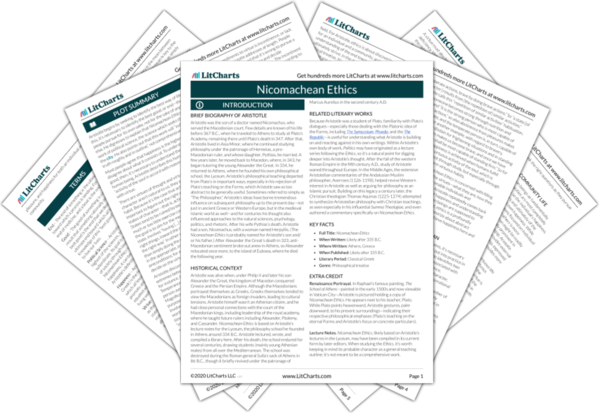Good Quotes in Nicomachean Ethics
Suppose, then, that the things achievable by action have some end that we wish for because of itself, and because of which we wish for the other things, and that we do not choose everything because of something else—for if we do, it will go on without limit, so that desire will prove to be empty and futile. Clearly, this end will be the good, that is to say, the best good.
Then does knowledge of this good carry great weight for [our] way of life, and would it make us better able, like archers who have a target to aim at, to hit the right mark? If so, we should try to grasp, in outline at any rate, what the good is, and which is its proper science or capacity.
Presumably, though, we had better examine the universal good, and puzzle out what is meant in speaking of it. This sort of inquiry is, to be sure, unwelcome to us, because those who introduced the Forms were friends of ours; still, it presumably seems better, indeed only right, to destroy even what is close to us if that is the way to preserve truth. We must especially do this as philosophers, for though we love both the truth and our friends, reverence is due to the truth first.












